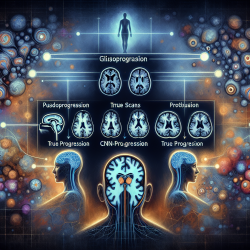Social anxiety disorder (SAD) is a prevalent mental health issue among adolescents, characterized by intense fear of social situations. The Young-HUNT 3 study provides valuable insights into how social support and social self-efficacy can mitigate these symptoms.
The Role of Negative Life Events (NLEs)
NLEs are significant predictors of SAD symptoms. These events can range from family illness to personal trauma, impacting adolescents' psychological well-being. The study found that adolescents who experienced NLEs were more likely to develop SAD symptoms.
Social Support as a Buffer
One of the key findings of the study is the buffering effect of social support on SAD symptoms. Social support not only reduces the direct impact of NLEs but also provides a protective mechanism against the development of SAD. Practitioners can leverage this by fostering supportive environments for adolescents.
Enhancing Social Self-Efficacy
Social self-efficacy refers to an individual's confidence in their ability to engage in social interactions. The study highlights that higher levels of social self-efficacy are associated with fewer SAD symptoms. Practitioners should focus on building this confidence through targeted interventions.
Implementing Interventions
- Social Skills Training: Programs like Social Skills Training for Children (SET-C) have shown efficacy in reducing SAD symptoms by enhancing social competence.
- Cognitive Behavioral Therapy: Techniques that focus on altering thought patterns can help adolescents manage anxiety and improve social interactions.
- School-Based Programs: Initiatives like the Skills for Academic and Social Success (SASS) integrate academic and social skills training to support adolescents in school settings.
The Importance of Continued Research
The Young-HUNT 3 study underscores the need for ongoing research into resilience factors like social support and self-efficacy. By understanding these dynamics better, practitioners can develop more effective interventions tailored to individual needs.
To read the original research paper, please follow this link: Mitigating adolescent social anxiety symptoms: the effects of social support and social self-efficacy in findings from the Young-HUNT 3 study.










